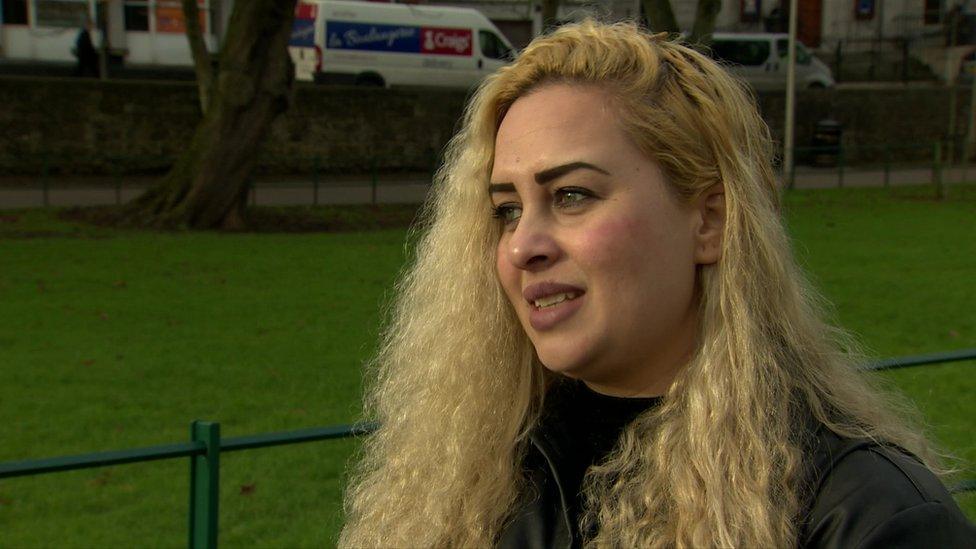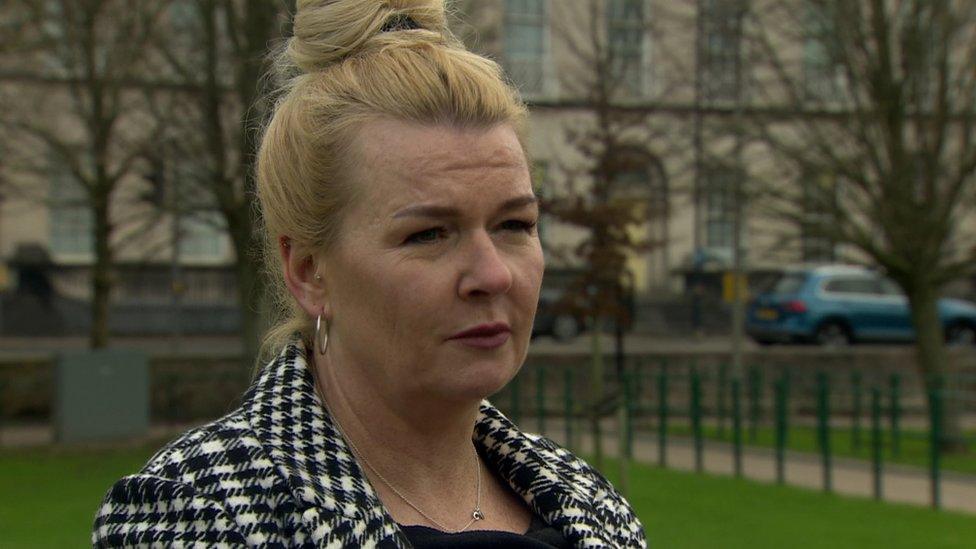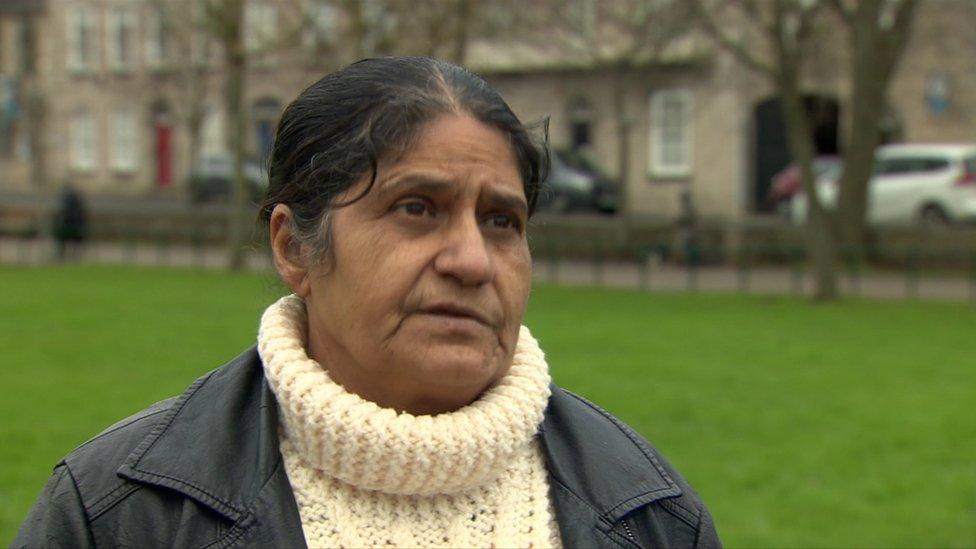Roma families facing 'inhumane' challenges in Northern Ireland
- Published

Naska Dimitrova outlined some of the problems facing many Roma families
Families from the Bulgarian Roma community are facing "inhumane" challenges in Northern Ireland, according to a charity.
The Armagh Roma Traveller Support group says the demand for its services, from hundreds of Roma families, is overwhelming.
Most of the families who seek help do not speak English and struggle to access many essential services
Zyumbyula Mitkova said her family has struggled to get critical medical help.
An interpreter explained that this was a big problem for Mrs Mitkova's family when they arrived in Northern Ireland.
"It was difficult for them to settle down, because they have a child with epilepsy and it was difficult for them to arrange documents for her and to find work because they don't speak the language," the interpreter said.
Language barrier
Another woman, Naska Dimitrova, also speaking to us through an interpreter, outlined some of the other problems facing many Roma families.
"We came here without knowing the language, we had difficulties to find where to stay and where to work," she said.
Bulgarian Roma families provide essential labour at many businesses in Northern Ireland, including factories and in the agricultural sector.
But Fidelma Fearon, from The Armagh Roma Traveller Support group, says they need more help in their daily lives.
"Rather than allow the Roma to go without and to be subjected to poverty, homelessness, and all other things that come with that, we took them on and we became a constituted anchor group for the Roma community," she said.
"The biggest challenge is the language barrier, that is the first thing, the second thing would be a lack of education.
"They can't read in their own language, never mind in English."

Fidelma Fearon from The Armagh Roma Traveller Support group has challenged the executive to do more
She said the problems were widespread.
"Documentation is very difficult to source, they may not have it," she added.
"So they can't open bank accounts, it's very difficult to get a national insurance number, it's very difficult to apply for benefits and now with the EU Settlement Scheme coming, we have to help them to do that or else they won't be here."
She added that the pressure was mounting and the charity was struggling to cope.
"It's overwhelming, the pressure is overwhelming," she said.
"Myself and my staff work here, not five days a week, seven days a week.
"There are staff members not leaving here until 22:00 GMT, because the circumstances that these people find themselves in are quite inhumane, there are complete breaches of human rights here and us as an organisation, we just can't turn our back to that."

Zyumbyula Mitkova says her family has struggled to get critical medical help
Ms Fearon also challenged the Stormont Executive to do more to help the Roma community.
"We would like The Executive Office, particularly the racial equality unit, to recognise that Roma are consistently the most discriminated group of people across Europe," she said.
"When they come to Northern Ireland, could we please try and stop that and to make sure that they are not always, consistently, at the bottom of the pile and that someone would, perhaps, make an effort to make a Roma strategy that would deal with the problems that the Roma face?"
In a statement to BBC News NI, a spokesperson for The Executive Office said the "racial equality strategy recognises there may be a need to develop and implement specific programmes of work to address particular challenges and vulnerabilities facing particular groups such as the Roma".
"While there is no intention to create a separate Roma strategy, work is ongoing to identify a Roma thematic group which will inform the cross departmental strategic planning group established on Travellers and Roma," a spokesperson said.
Roma families believe that is overdue.
They say they have been waiting far too long for official recognition and resolution of their plight.